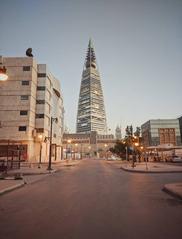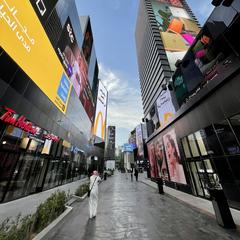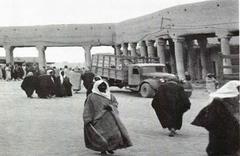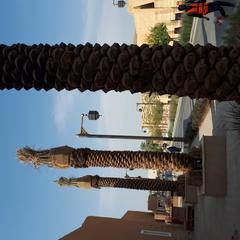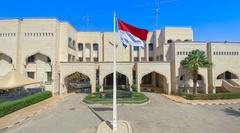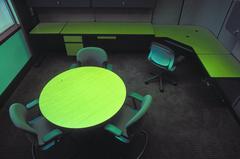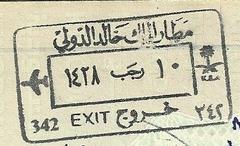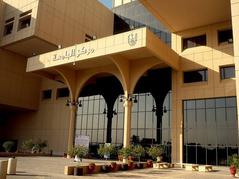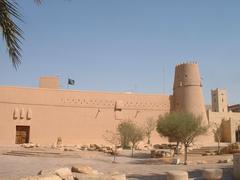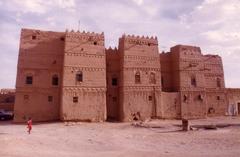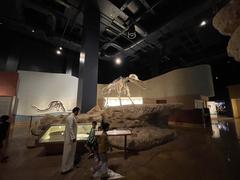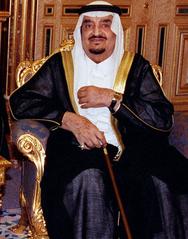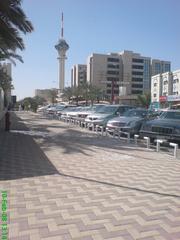King Fahad Medical City Visiting Hours, Tickets, and Visitor Guide
Date: 15/06/2025
Introduction
King Fahad Medical City (KFMC) in Riyadh, Saudi Arabia, stands as the largest and most advanced medical complex in the Middle East, renowned for its comprehensive healthcare services, innovative research, and commitment to patient-centered care. As a national reference center for specialized tertiary care, research, and education, KFMC plays a vital role in the Kingdom’s healthcare transformation and aligns closely with Saudi Arabia’s Vision 2030 goals. This guide provides a detailed overview of KFMC’s history, facilities, visiting hours, patient and visitor services, travel tips, and essential cultural information—ensuring a smooth and informed experience for both local and international visitors (Saudi Arabia ABC; Saudipedia).
Table of Contents
- Introduction
- Historical Background and Significance
- Facilities and Infrastructure
- Visitor Information and Patient Services
- Travel Tips and Accessibility
- Cultural Etiquette and Practical Advice
- Strategic Importance and Future Directions
- Frequently Asked Questions (FAQ)
- Conclusion
- References
Historical Background and Significance
Foundation and Vision
KFMC was conceptualized in the early 1980s, during a pivotal era of modernization in Saudi Arabia. The foundation stone was laid in 1983 by then Prince Salman bin Abdulaziz, Governor of Riyadh, and it was named in honor of King Fahd bin Abdulaziz Al Saud. The goal: to create a flagship medical city that would serve as a center for advanced treatment, education, and research for the Kingdom (Saudi Arabia ABC; Saudipedia).
Construction and planning spanned over two decades, reflecting both the complexity and ambition of the project. KFMC was officially inaugurated in 2004, representing a significant leap forward in the Kingdom’s healthcare capabilities (Wikipedia).
Growth and Achievements
From its inception, KFMC has expanded to include four major hospitals: the Main Hospital, Children’s Specialized Hospital, Women’s Specialized Hospital, and the Rehabilitation Hospital. The medical city is also home to specialized centers such as the National Neuroscience Institute, King Salman Heart Center, and the region’s first Proton Therapy Center—demonstrating its leadership in advanced medical treatments (Marcopolis).
KFMC treats over 600,000 outpatients and 50,000 inpatients annually, and by 2015, it had grown to accommodate 1,200 beds, with further expansion planned to reach 1,800 beds (Marcopolis).
Facilities and Infrastructure
KFMC’s campus, centrally located in Riyadh, spans approximately 500,000 square meters and features:
- Main Hospital: 459 beds, specialized clinics, and advanced diagnostics
- Children’s Hospital: 246 beds for pediatric care
- Women’s Hospital: 236 beds for obstetrics and gynecology
- Rehabilitation Hospital: 159 beds for comprehensive rehabilitation
- Specialized Centers: Including the National Neuroscience Institute, Oncology Center, and the world-class Saudi Proton Therapy Center
- Operating Theatres: 30 fully equipped rooms
- ICUs: Among the largest in the region
- Research and Training Facilities: Supporting innovation and education
The medical city also offers spacious waiting areas, prayer rooms, cafeterias, pharmacies, and retail outlets, ensuring comfort and convenience for patients and visitors alike (Eye of Riyadh).
Visitor Information and Patient Services
Visiting Hours
- General Hospitals: 3:00 PM – 8:00 PM daily
- Specialized Units (ICU, Pediatric): May have restricted or variable hours—confirm directly with the department
- No admission fees are required for entry; official ID may be needed for registration at security checkpoints
Appointments and Registration
- Appointments: Book via the KFMC official website, mobile app, or by calling the patient services hotline
- New Patients: Register online or at the Medical Records Department before your scheduled visit
- Walk-ins: Limited; appointment is highly recommended
Amenities and Support Services
- Information Desks: Located at main entrances for assistance and directions
- Cafeterias & Food Courts: Serve a variety of cuisines for patients and visitors
- Prayer Rooms: Available for men and women throughout the campus
- Waiting Lounges: Air-conditioned, with Wi-Fi and charging points
- Children’s Play Areas: Found in the Pediatric Hospital
- Pharmacies and Retail: On-site for prescriptions and essentials
COVID-19 Protocols
- Mask-wearing, temperature checks, and adherence to health guidelines are required; always check the latest updates on the KFMC website
Travel Tips and Accessibility
How to Reach KFMC
- Location: In the heart of Riyadh, bordered by Makkah Al Mukarramah Road and key city arteries
- By Car: Ample surface and underground parking available
- Public Transport: Accessible by Riyadh Metro (nearest stations within a short ride), and multiple city bus routes
- Taxi/Ride-Hailing: Uber, Careem, and local taxis have designated drop-off zones at main entrances
- Accessibility: Wheelchair-accessible ramps, elevators, restrooms, and parking
Navigation and Amenities
- Signage: Bilingual (Arabic and English) throughout the complex
- Digital Navigation: KFMC mobile app and interactive kiosks available
- Nearby Hotels: Several hotels within a short drive (e.g., Riyadh Marriott), suitable for international visitors
Cultural Etiquette and Practical Advice
- Dress Code: Modest attire is expected—long trousers and sleeve shirts for men; loose-fitting, arm/leg-covering clothes for women. Foreign women are advised to wear an abaya for cultural respect
- Behavior: Respectful conduct is required; avoid loud conversations and public displays of affection
- Religious Observance: Prayer times are observed; services may pause briefly. Prayer rooms are open to all
- Photography: Not permitted inside medical areas; permitted outdoors for campus architecture
- Language: Arabic is primary; English is widely spoken among staff and interpreters are available
- Identification: Carry valid ID (passport or national ID) for security checks
Strategic Importance and Future Directions
KFMC continues to drive national healthcare transformation through:
- Pioneering Treatments: Home to the region’s first Proton Therapy Center and leading programs in genomics and personalized medicine
- Research Excellence: Active in clinical trials, with a strong focus on oncology, cardiology, neuroscience, and diabetes
- Academic Leadership: Ranked among the top 100 global academic medical centers (Wikipedia)
- Vision 2030 Alignment: Expansion into medical tourism, digital health, and integrated care networks, positioning KFMC as a regional hub for excellence (The Worldfolio)
Frequently Asked Questions (FAQ)
Q: What are the visiting hours at KFMC?
A: 3:00 PM to 8:00 PM in general hospitals. Check specific departments for varying hours.
Q: How can I book an appointment?
A: Via the KFMC website, mobile app, or by calling patient services.
Q: Is there parking for visitors?
A: Yes, including spaces for people with disabilities.
Q: Are there admission or entry fees?
A: No, entry is free for patients and visitors.
Q: Can I use public transportation to reach KFMC?
A: Yes, accessible by metro, city buses, taxis, and ride-hailing services.
Q: Are the facilities accessible to people with disabilities?
A: Yes, with ramps, elevators, and accessible restrooms and parking.
Q: Is photography allowed?
A: Only outdoors; photography inside medical facilities is prohibited.
Conclusion
King Fahad Medical City is a beacon of medical innovation and compassionate care in Riyadh and the Middle East. Its advanced facilities, comprehensive services, and patient-focused approach make it an exemplary healthcare destination for both local residents and international visitors. By understanding visiting hours, booking protocols, cultural expectations, and leveraging digital resources, patients and visitors can ensure a seamless and respectful experience.
For up-to-date information, appointments, and guidance, always refer to the official KFMC website or contact their patient services directly.
